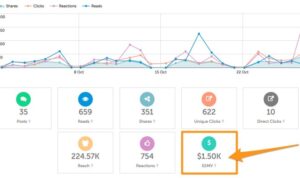Multi-Channel Marketing opens the door to a world of endless possibilities in the digital realm, where brands can connect with consumers through various platforms. From social media to email and beyond, this dynamic strategy is the key to reaching and engaging audiences like never before.
Definition of Multi-Channel Marketing

In today’s digital age, multi-channel marketing refers to the practice of reaching customers through various platforms and channels to create a seamless and integrated experience. This strategy involves utilizing a combination of online and offline channels to engage with customers at different touchpoints throughout their buying journey.
Importance of Multi-Channel Marketing
Multi-channel marketing is crucial in today’s competitive landscape as it allows businesses to connect with customers on their preferred platforms, increasing brand visibility and customer engagement. By having a presence across multiple channels, companies can reach a wider audience and drive conversions through personalized and targeted messaging.
- Increased brand visibility: By being present on various channels such as social media, email, SMS, and more, businesses can increase their visibility and reach a larger audience.
- Enhanced customer engagement: Engaging with customers through multiple touchpoints allows businesses to build stronger relationships and provide a seamless experience.
- Improved conversion rates: By targeting customers with personalized messages across different channels, businesses can drive conversions and increase sales.
Examples of Channels in Multi-Channel Marketing
- Social media: Platforms like Facebook, Instagram, Twitter, and LinkedIn are commonly used for brand promotion and customer engagement.
- Email marketing: Sending targeted emails to customers based on their preferences and behaviors is a key component of multi-channel marketing.
- SMS marketing: Text messages can be used to deliver promotions, updates, and reminders to customers, providing a direct and immediate form of communication.
- Website: A company’s website serves as a central hub for information, products, and services, complementing other marketing channels.
Strategies for Multi-Channel Marketing

In the digital age, it’s essential to have a strong multi-channel marketing strategy to reach your target audience effectively. By integrating various channels seamlessly, you can create a cohesive approach that maximizes your brand’s visibility and engagement.
Importance of Consistency in Messaging
Consistency is key when it comes to multi-channel marketing. Your messaging should be uniform across all channels to build brand recognition and trust with your audience. Whether it’s social media, email marketing, or advertising, maintaining a consistent voice and brand image will help reinforce your message and increase brand loyalty.
Tips for Personalizing Content
Personalization is crucial for maximizing engagement across different channels. Tailor your content to fit the specific platform and audience you are targeting. Use data and analytics to understand your audience’s preferences and behavior, then create personalized messages that resonate with them. Whether it’s through targeted ads, customized email campaigns, or interactive social media content, personalizing your approach will help you connect with your audience on a deeper level.
Tools and Technologies for Multi-Channel Marketing
In the world of multi-channel marketing, utilizing the right tools and technologies can make all the difference in maximizing campaign success. Let’s explore some popular options and how they contribute to effective marketing strategies.
Popular Tools and Platforms
- Customer Relationship Management (CRM) Software: Platforms like Salesforce, HubSpot, and Zoho CRM help businesses manage customer data and interactions across various channels.
- Email Marketing Tools: Services such as Mailchimp, Constant Contact, and Sendinblue enable businesses to create and send targeted email campaigns to engage with customers.
- Social Media Management Platforms: Tools like Hootsuite, Buffer, and Sprout Social assist in scheduling posts, analyzing performance, and monitoring social media interactions.
- Marketing Automation Software: Platforms such as Marketo, Pardot, and Eloqua automate repetitive marketing tasks, streamline workflows, and nurture leads efficiently.
Analytics Tools for Tracking Performance
- Google Analytics: A widely used tool for tracking website traffic, user behavior, and conversion rates across different marketing channels.
- Adobe Analytics: Provides in-depth insights into customer journeys, engagement metrics, and ROI analysis for multi-channel marketing campaigns.
- Kissmetrics: Focuses on customer behavior analysis, cohort tracking, and funnel optimization to enhance marketing strategies.
Role of Automation in Optimization
Automation plays a crucial role in optimizing multi-channel marketing efforts by streamlining processes, personalizing customer interactions, and improving overall campaign performance. By automating tasks such as email drip campaigns, social media posting, and lead nurturing, businesses can save time, increase efficiency, and deliver a seamless omni-channel experience to their audience.
Challenges and Solutions in Multi-Channel Marketing
Implementing multi-channel marketing strategies can be a complex endeavor, often presenting various challenges that businesses need to overcome in order to run successful campaigns. Let’s explore some common hurdles faced in multi-channel marketing and discuss effective solutions to tackle them.
Challenge: Lack of Consistent Brand Messaging
Inconsistencies in brand messaging across different channels can confuse consumers and dilute brand identity.
- Establish brand guidelines that clearly define the tone, voice, and messaging to maintain consistency.
- Use a centralized content management system to ensure all channels have access to the latest brand assets and messaging.
- Regularly audit and review all marketing materials to ensure alignment with brand guidelines.
Challenge: Data Silos and Fragmented Customer Insights
Data fragmentation can hinder the ability to create a unified view of customers and deliver personalized experiences.
- Invest in a robust Customer Relationship Management (CRM) system that integrates data from all channels.
- Implement data analytics tools to consolidate customer data and derive actionable insights.
- Utilize data visualization techniques to identify patterns and trends across channels.
Challenge: Attribution and Measuring Effectiveness
Attributing conversions and measuring the impact of each channel on the customer journey can be challenging.
- Utilize multi-touch attribution models to assign credit to each touchpoint in the customer journey.
- Implement tracking technologies to monitor customer interactions across channels.
- Regularly analyze key performance indicators (KPIs) to assess the effectiveness of each channel.





